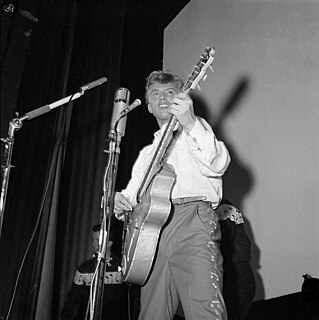
Sir Thomas Hicks,, known professionally as Tommy Steele, is an English entertainer, regarded as Britain's first teen idol and rock and roll star. After being discovered at the 2i's Coffee Bar, he recorded a string of hit singles including "Rock with the Caveman" (1956) and the chart-topper "Singing the Blues" (1957). Steele's rise to fame was dramatised in The Tommy Steele Story (1957), the soundtrack of which was the first British album to reach number one on the UK Albums Chart. He starred in further musical films including The Duke Wore Jeans (1958) and Tommy the Toreador (1959), the latter spawning the hit "Little White Bull".

"Sliver" is a song by the American rock band Nirvana, written by vocalist and guitarist Kurt Cobain.

"Sugar, Sugar" is a song written by Jeff Barry and Andy Kim. It was originally recorded by the cartoon band the Archies. This version reached No. 1 in the US on the Billboard Hot 100 chart in 1969 and remained there for four weeks. It also reached No. 1 on the UK Singles chart in that same year for eight weeks. The song became a hit again in 1970 when rhythm and blues and soul singer Wilson Pickett's version was listed on music charts.

"Think" is a song written by American singer Aretha Franklin and Ted White, and first recorded by Franklin. It was released as a single in 1968, from her Aretha Now album. The song reached No. 7 on the Billboard Hot 100, becoming Franklin's seventh top 10 hit in the United States. The song also reached number 1 on the magazine's Hot Rhythm & Blues Singles, becoming her sixth single to top the chart. The song was written by Franklin and her then husband Ted White. Franklin re-recorded the song in the Atlantic Records New York studio for the soundtrack of the 1980 film The Blues Brothers and in 1989 for the album Through the Storm. Pitchfork placed it at number 15 on its list of "The 200 Greatest Songs of the 1960s".

"Love Song for a Vampire" is a song composed and recorded by Scottish singer-songwriter Annie Lennox. It was recorded for Francis Ford Coppola's 1992 film, Bram Stoker's Dracula based on the 1897 gothic horror novel, where it plays during the end credits. Released as a double A-side with "Little Bird" in Ireland, the United Kingdom and several other countries in Europe, the single was a hit, peaking at number three on the UK and Irish Singles Charts. "Love Song for a Vampire" by itself reached number four in Spain and number 10 in France.

"Dead End Street" is a song by the British band the Kinks from 1966, written by main songwriter Ray Davies. Like many other songs written by Davies, it is to some degree influenced by British Music Hall. The bass playing was partly inspired by the "twangy" sound of Duane Eddy's guitar. It was originally released as a non-album single, but has since been included as one of several bonus tracks from the Face to Face CD. The song, like many others by the group, deals with the poverty and misery found in the lower classes of English society.
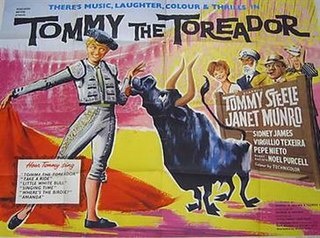
Tommy the Toreador is a 1959 British musical comedy film directed by John Paddy Carstairs and starring Tommy Steele, Janet Munro, Sid James, Bernard Cribbins, Noel Purcell and Kenneth Williams.

"A Voice in the Wilderness" is a song by Cliff Richard and the Shadows, released as a single in January 1960. It peaked at number 2 on the UK Singles Chart and also received a silver disc for 250,000 sales.
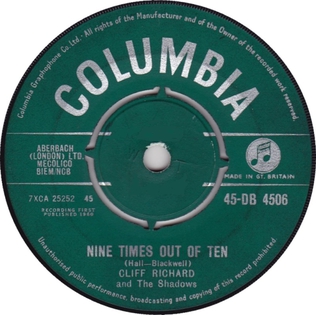
"Nine Times Out of Ten" is a song by Cliff Richard and the Shadows, released as a single in September 1960. It peaked at number 3 on the UK Singles Chart and also received a silver disc for 250,000 sales.
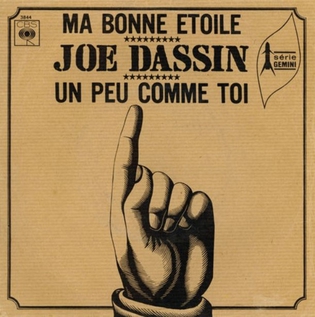
"Ma bonne étoile" is a song by Joe Dassin from his 1969 album Joe Dassin .
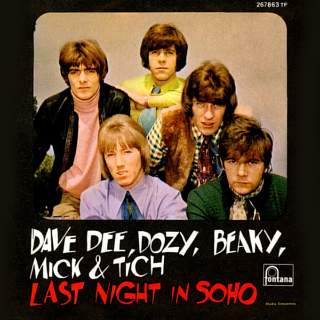
"Last Night in Soho" is a single by English pop band Dave Dee, Dozy, Beaky, Mick & Tich, released by Fontana on 28 June 1968. Written by the band's regular songwriters Ken Howard and Alan Blaikley, it was the follow-up to the chart topper "The Legend of Xanadu" and gave the band their final top-ten placing on the UK Singles Chart, reaching number 8.

"Bad Boy" is a song by rock and roll singer Marty Wilde, released as a single in November 1959. It peaked at number 7 on the UK Singles Chart and number 45 on the Billboard Hot 100.

Expresso Bongo is an EP by Cliff Richard and the Shadows, released in January 1960. It contains all the songs by the group sung in the film of the same name in which Richard also stars.
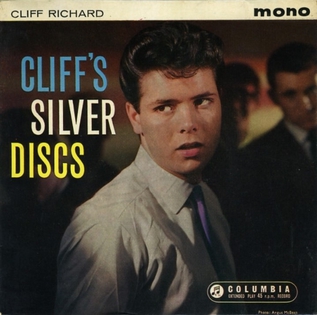
Cliff's Silver Discs is a compilation EP by Cliff Richard and the Shadows, released in December 1960. It topped both the Record Retailer and Melody Maker EP charts.
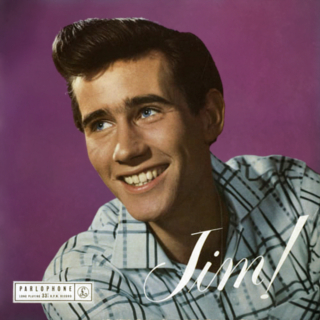
Jim! is the first studio album by the English actor, singer and songwriter Jim Dale, credited to Dale with Ken Jones and his Orchestra and the Michael Sammes Singers. Released as a 10-inch LP on EMI's Parlophone label in March 1958, Jim! was produced by the label's head George Martin and has been cited as "the first British rock and roll LP". It was Dale's only album released during his initial fame as a teen idol; he quit recording to pursue comedy soon after its release.















